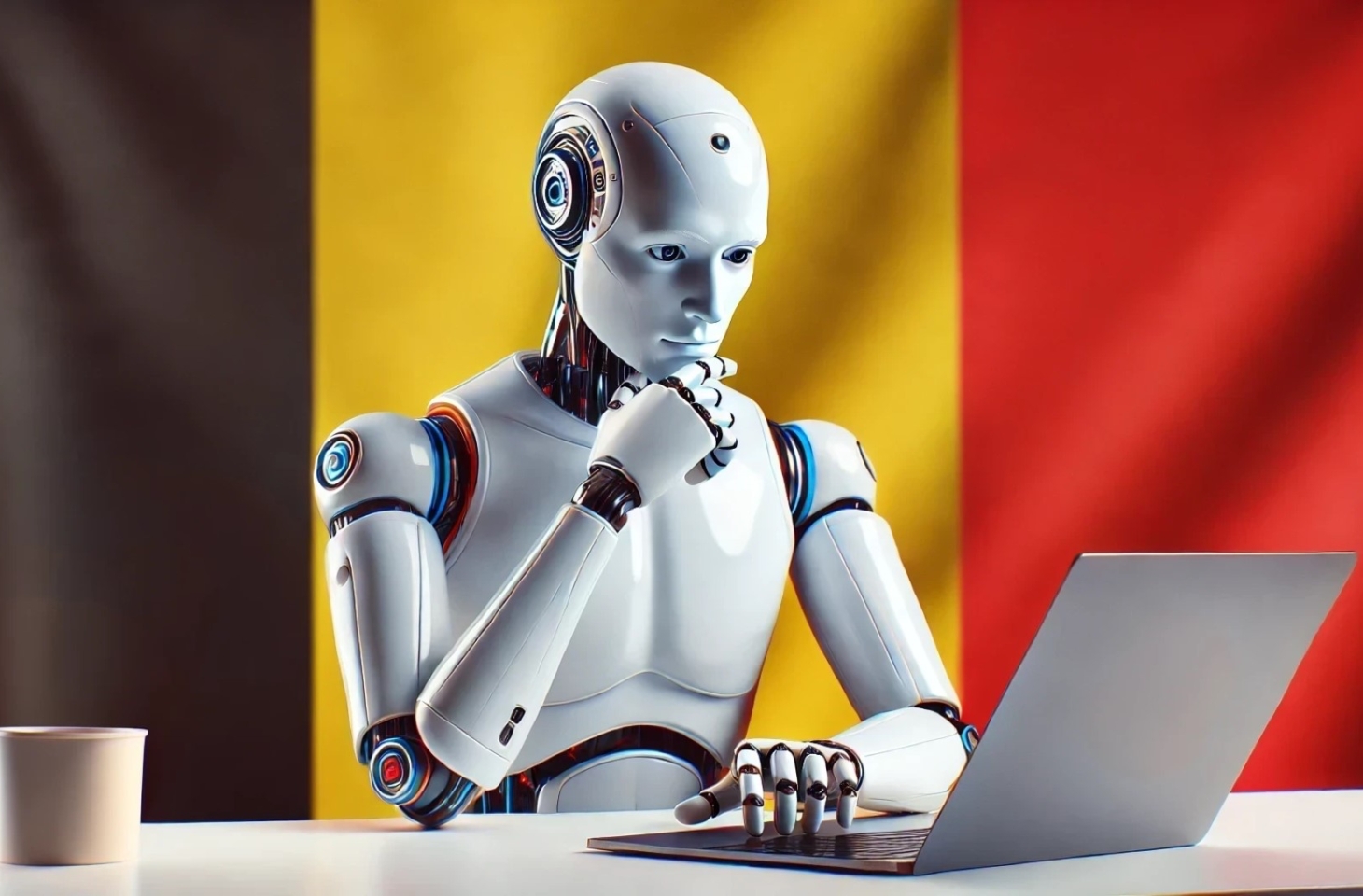AI is increasingly embedded in business processes, or at least that’s what we think. How is AI affecting skills and where are we today in the AI era?
Artificial intelligence (AI) is making its way into business processes that are becoming increasingly efficient and productive. In addition, a skills shift is taking place. How ingrained will AI be in businesses? “We are only at the beginning of the AI era,” states Thijs Paepen, Account Manager at Ctac. Joining us around the table are Mathias Coopmans, Cloud and Architecture Lead at SAS, Ziad A Fayad, Data Cloud Specialist Lead at Salesforce and Christophe Robyns, Managing Partner at Agilytic. The experts discuss how AI is changing business processes, reshaping skills and where we are in Flanders.
Early beginnings of AI
“We are only at the beginning of the AI era, but the possibilities are already enormous,” Paepen begins. Generative AI tools are being used in companies to speed up routine tasks and increase productivity. “Creating presentations, preparing quotes or customer surveys: these tasks can be done in minutes thanks to AI, which previously took hours or days,” he explains. Fayad also notes that AI is being used in a wide range of applications: “From sales and marketing to legal work and manufacturing.”
We are only at the beginning of the AI era, but the possibilities are already enormous.
Thijs Paepen, Account Manager at Ctac
Weak foundation
Everyone around the table supports the value of AI within companies, but with some skepticism. Robyns cites an interesting discrepancy. “If we are to believe the media, everything is AI and everyone is already using it, but in reality many companies are not yet ready for it. The reality of SMEs in Belgium is that they do not yet have the right reins to fill the ’empty brains’ of AI agents with correct data,” Robyns argues.
Agentic AI
In today’s AI era, we cannot avoid “AI agents. “AI agents are nothing more than a framework and set of tools,” Fayad believes. He believes Agentic AI can narrow the gap between analysis and action, allowing companies to get results faster.
AI agents are nothing more than a framework and set of tools.
Ziad A Fayad, Data Cloud Specialist Lead at Salesforce
Yet Paepen notes that it still takes a lot of trust to hand off the action to AI. He explains this with an example. “When I get into the car, Google Gemini immediately asks me where I’m driving to suggest the shortest route. These are suggestions I can trust or not. Before we trust that AI in general will perform the desired and correct action, years of correct suggestions will have to come and monitoring will be required.”
Zero skills?
AI is capable of taking over a lot of tasks from employees, something many companies have already experienced. “On a business level, AI will ensure that ‘zero skills’ are needed,” Paepen states. “This does not mean that the human aspect will become obsolete. But at a certain (business) level, skills will no longer be needed, except for data interpretation. This is different in the technical area, where you will still need data experts for implementation and connection to different systems.”
read also
Where are Belgian companies in the AI era?
Fayad picks up on this with a brief anecdote from a book (Range, David Epstein). “During technological evolution, a function such as bank teller soon had to give way to an ATM. This did not mean that the role of bank teller disappeared, it just got a different interpretation, such as a more advisory and customer-oriented function,” Fayad explains. So AI will not necessarily make roles disappear, but it will give them a different interpretation.
AI makes people’s skills evolve.
Mathias Coopmans, Cloud and Architecture Lead at SAS
Coopmans concurs. “AI is causing people’s skills to evolve.” According to him, there is a shift toward more generalist skills and empathy. He emphasizes that thanks to AI, many repetitive tasks are being automated, allowing employees to focus on more strategic and valuable tasks. “While technical skills are still important, there is a growing emphasis on interpreting data and asking the right questions,” he states.
Chicken and the egg
Is it humans first who learn new skills through new tools, or do human skills exceed existing tools which causes tools to evolve? “This is the typical chicken and egg question that we can also ask ourselves within the AI domain,” Coopmans said.
In addition, Coopmans highlights an important benefit of AI models. “If we capture existing knowledge from different colleagues in such models, it can provide a lot of value,” Coopmans said. “This allows companies to process their data more efficiently and apply existing knowledge in new ways.”
Well on its way
Although AI technology is evolving rapidly and exceeding the technological knowledge of most companies, there are some pioneers who are proving otherwise. “We should not underestimate ourselves as Belgians,” states Coopmans. “I work in an EMEA role that takes me to several organizations in Europe and the UK. There I see similar challenges and successes as in Belgium, so we can certainly be proud of ourselves.” Robyns also highlights a positive evolution within Belgium. “I notice that there are more and more initiatives to train and teach people how to use these AI tools.”
read also
Belgian SMEs faster away with AI than European competitors
This is the third editorial in a series of three on the topic of data and analytics. Click on our theme page to see all the articles from the roundtable, the video and our partners.
